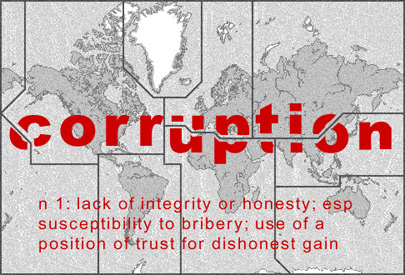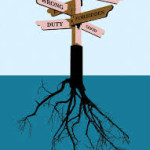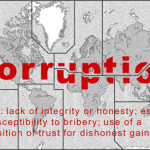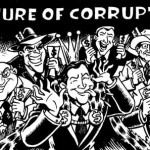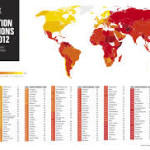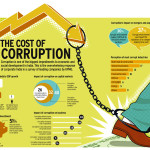“I will not let anyone walk through my mind with their dirty feet” – MK Gandhi
It is argued by cynics that we are all essentially corrupt at heart, being by nature human and flawed. I’m not going to get into philosophical debates about whether we are inherently good or evil, but let’s say that there is plenty of evidence around the world that there are occasions when accepting money or payment in kind for services rendered is always tempting, then of course to compound the offence by lying about it afterwards.
However, rather than discuss the nature of our corrupt souls, I want to explore a few morally grey areas to see how we might behave in various circumstances. I suspect that most readers would claim never to be tempted to accept bribes or gifts, or otherwise to behave in an immoral or amoral fashion, but I’m not so sure.
Faced with the circumstances and if they thought they could get off scot free, I’m sure many would sell their souls. In practice, integrity is a very rare and precious commodity. Who was it who said that the measure of a man is how he behaves when nobody can see him?
That said, the alternative view would be that bribes and gifts oil the wheels of capitalism and make everything work more effectively. It could be argued that corruption is a way of life around much of the world, almost the expected mode of behaviour around African nations, the Arab world and elsewhere. Maybe it is hypocritical to think that we are any different, higher and mightier in our ethics than anybody else – maybe our forms of corruption are more subtle and discreet? Perhaps we be should more pragmatic and less high and mighty about such things?
So here goes! All I ask is that you be totally honest with yourself and with me in answering these questions:
1) You are Prime Minister. A large corporation led by a megalomaniac billionaire offers your party unlimited funding for the next election in exchange for a variety of policy changes, one of which would get his company off the hook in a forthcoming scandal. Naturally, you refuse outright since it would be wrong to set policy for a donor, but then he offers you a present of a house in Antigua via a trust fund, done in such a way nobody would ever know the source, and even suggesting a way that made it look like you had bought the house yourself. In short, you will almost certainly never be exposed in any newspaper. He doesn’t say directly that the price for the gift would be your personal support for the policy change. What do you do?
2) You and your party are 2/3 of the way through the queue to a major new attraction at a theme park. You have been waiting hours to get this far, and fast track passes are suspended. Someone outside the queue whispers to you. You look surprised but listen. He offers you £10 to take your place in the queue. You refuse, so he increases his offer to £20, saying he doesn’t have time and his children are desperate to try the ride, and if pushing in is not acceptable then to push in ahead of you. You still refuse so he asks you to name your price. Everybody else in the queue is looking the other way and has not heard this conversation. Tempted?
3) You are responsible for the procurement decision to award a massive multi-million government contract, having scrutinised all the bids and followed process to the letter. So far as you are aware, there is no personal contact between any of the bidders and any member of your team, but you keep your eyes open in case of any impropriety. Finally, the bid is awarded to one of the competitors. The following day, you get home to find a large wad of money in an envelope has been placed anonymously through your door. What do you do next, and would it make any difference if the envelope contained two first class tickets to your chosen destination instead?
4) You are now on the other side of the fence. You are bidding for a contract to supply arms to a middle-eastern potentate, and know that if it is an equal playing field your products are the best and are at least competitive on price. It comes to your attention that all the other bidders have paid bribes to the emir of the country involved, and that the decision will almost certainly go against you if you do not do likewise. If you don’t, several UK factories will close and workers will be made redundant. What do you do?
5) You are playing cricket for England against Australia as wicket keeper. You know some of your team-mates have been offered bribes by Far East betting syndicates to take particular actions at particular times, so you are are wary of anyone approaching you – it will almost certainly get out. However, you are desperate to win the match and be covered in glory, so you decide to stack the odds in your favour by claiming the key catch, in spite of knowing to be a bump-ball – in spite of feeling very guilty about cheating. The batsman is given out and England go on to win the Test. Afterwards, you are interviewed by TV and asked if you caught the ball cleanly. What do you say, and why?
If you decide the bribes in each case are beyond your moral limits, what would persuade you to break with your principles and accept a bribe?

